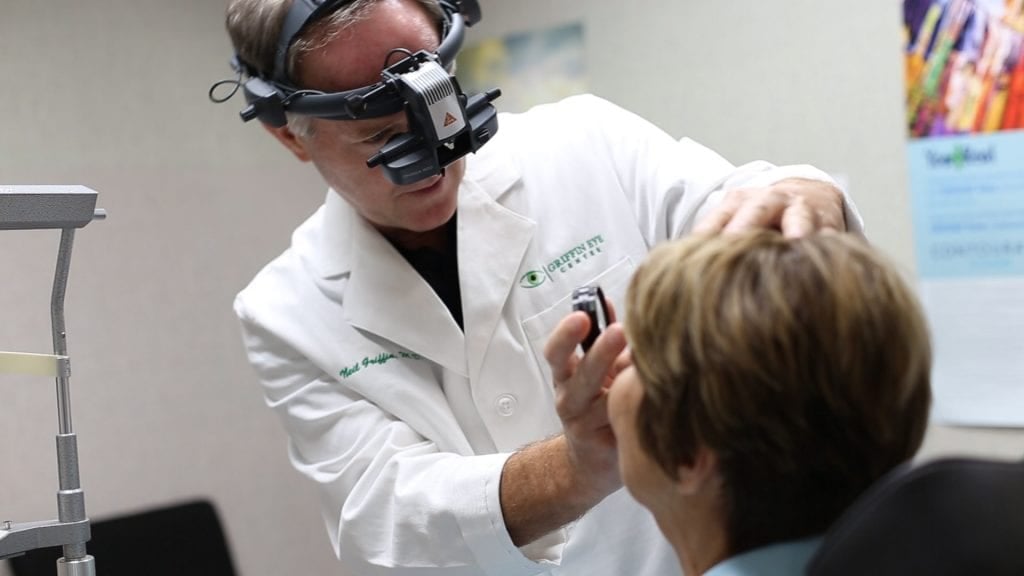If your world is getting a little cloudy, it may not be the weather. You could be developing cataract, which means the lens in one of your eyes – or both eyes – has becomes partly or completely cloudy.
The lens plays a vital role in helping us see clearly. When you look at something, light passes through the clear cover or cornea, which bends it and sends it inside the eye to the lens. The lens then focuses the light onto the retina – which acts like the film in a camera – inside the eye. The retina then sends the information to the brain
At some point in many of us, our lenses will start to change and go from clear to cloudy which will prevent the retina from receiving a sharp image – and the image you see will be blurry. If this has happened to you, you may be wondering if you’re developing cataracts – and have questions about what to do. This Q&A can help you find answers to some of the most commonly-asked cataract questions:
How will I know if I have cataracts?
If you’re over 60 and your vision has started getting cloudy or fuzzy and colors seem faded, you may have cataracts. Some people begin to experience these symptoms as early as in their 40s or 50s. Other changes in vision to watch for include reduced night vision, halos around lights and double vision. Getting cataracts is part of the normal aging process – although it can happen at any time in your life – and also a common condition if you have diabetes, an eye injury, or use steroid eye drops or tablets. If you smoke, drink alcohol and have a poor diet, you’re also at risk for cataracts. If you notice any changes in your vision, or suspect you have cataracts, schedule an appointment with your eye care professional.
What tests will my eye care professional give me?
In addition to giving you a comprehensive eye exam, your eye doctor (either an optometrist or ophthalmologist) will:
Give you a visual acuity test (i.e., have you read an eye chart) to check your distance and near vision and check if you simply need a change of glasses.
Examine the front of your eyes, including your lens, using a special microscope called a slit lamp.
Dilate your eyes using special drops to open your pupils to examine the inside of your eyes, including the lens (cataract), retina and optic nerve.
Will I need eye surgery?
Some cataracts stay small and may not need to be removed, but if they start to interfere with your everyday activities, then you may want to consider surgery. This typically is an outpatient operation, during which your cataract surgeon (also known as a refractive surgeon) will remove the cloudy lens and replace it with an artificial intraocular lens (IOL) implant. Conventional cataract surgery is extremely effective and there is a new option of laser cataract surgery that may be a good option to discuss with your surgeon. Learn more about what to expect during cataract surgery here.
What IOL lens options will I have?
There are several types of IOL technology available, including standard or monofocal lenses, which can correct vision at one field of distance (near, far or intermediate). The latest multifocal or accommodative intraocular lenses can help you see both near and far objects with a reduced or even complete reduction in the need for glasses. Toric intraocular lenses can help correct astigmatism and distance vision, but you may need glasses for reading. Just like LASIK, there is an IOL monovision option, which uses two different lenses to correct near vision in one eye and distance vision in the other. Discussion your vision goals with your eye surgeon and together you can determine the best IOL technology to fit your vision needs.
This information is provided by the Refractive Surgery Council.
Dr. Neil B. Griffin is one of the leading ophthalmologists in the Myrtle Beach area and specializes in cataract and LASIK surgery. He is committed to providing world class surgical technology and the most advanced vision diagnostics to the South and North Carolina area. Griffin Eye Center offers the latest in cataract surgery with the most advanced Intra-Ocular Lenses available and a state-of-the-art on-site LASIK suite for the best Laser Vision Correction possible.
He is one the first to offer the RXSight Light Adjustable lens which is customized vision after your cataract surgery! He is also the first in South Carolina to offer the latest advancement in laser vision technology with the combination of both the latest Wavelight® EX500 excimer laser and the VisuMax® laser.
Dr. Griffin is an active member of American Society of Cataract and Refractive Surgery (ASCRS), American Refractive Surgery Council (ARSC), American-European Congress of Ophthalmic Surgery (AECOS), and the International Society of Refractive Surgery (ISRS).
If you would like to learn more about cataract surgery, contact us at griffineyecenter.com.
